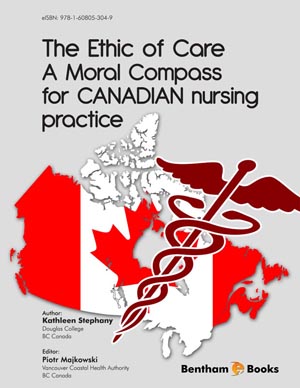Abstract
To facilitate respect for differences in opinions, the “how to” of the values clarification process is clearly articulated. People are often unaware of what some of their values consist of because values are so entrenched into how a person thinks and behaves. Subsequently, values are frequently acted upon in an automatic fashion. When a nurse is not aware of their values, especially when it comes to precarious subject matter, they may inadvertently impose their point of view onto others. From an ethical perspective, this type of response can be extremely problematic. The association and difference between moral agency, moral residue and moral disengagement is made evident as well as what to do when they occur. Nurses are advised of the importance of getting help when moral residue leads to moral disengagement. An effective strategy is suggested as a way for nurses to own their personal and professional strengths as a means to deal with moral issues in practice. A case study portrays how the client’s right to choose not to receive treatment, ends in moral residue for the nurse. An additional exercise is presented as a way for nurses to enhance their awareness of their personal opinions on heated issues like: abortion; stem cell research; in-vitrofertilization; organ donation; euthanasia; and capital punishment. In order to gain a better understanding of values that collide with their own, nurses are prompted to intentionally debate the opposite side of each argument.
Keywords: Attitudes, Beliefs, Values, Values clarification, Reflective journaling, Selfawareness, Moral agency, Moral disengagement, Moral residue







